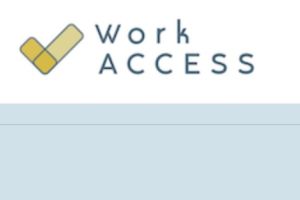The project focuses on young people with a disability, particularly high school students, who are just starting to think about future careers. They will need accommodations and possibly need to start developing new skills in mastering assistive technologies to meet their career needs. Our project is to develop a tool to help users figure out potential accommodation needs that they might encounter in the future workplace and suggest possible solutions.

CIDI advocates for usability, inclusivity, and accessibility for all. Our center collaborates with colleagues, friends, designers, and innovators to expand the awareness around the importance of incorporating accessibility into design. Our goal is to impart the importance and value of a disability, because accessibility affects all aspects of our lives. Our center is excited and prepared to continue to share knowledge and ideas on the next steps in accessibility and inclusion.
The Center for Inclusive Design and Innovation (CIDI) was created by a merger of the Center for Assistive Technology and Environmental Access (CATEA) and AMAC Accessibility.
CATEA grew out of collaborations in the late 1970s between Georgia Tech Industrial Design students and local disability groups. Their efforts led to the establishment of CATEA in 1980 by the Board of Regents. For more than 20 years, CATEA provided services for Georgia's Division of Vocational Rehabilitation, established the statewide TechKnowledge information clearinghouse on assistive technology, hosted various national resource centers on assistive technology for the workplace, provided accessibility audits for public facilities and information technology to comply with the Americans with Disabilities Act, and produced computer skill and adult education programs. By the early 2000s, CATEA had transformed from a service-oriented center into a full-fledged research center.
AMAC Accessibility started in 2005 as the Alternative Media Access Center to help post-secondary institutions provide complete, timely, and efficient accommodations to print-disabled students. This began with e-text production, and by 2009 had expanded into braille, captioning, and audio description. By 2010, AMAC transitioned to the Georgia Institute of Technology, where it became a research and service center of Georgia Tech's College of Design in 2013 known as AMAC Accessibility Solutions & Research Center. In 2017, as a leader in content engineering designed to increase accessibility globally in the post-secondary industry, it simplified its name to AMAC Accessibility.



